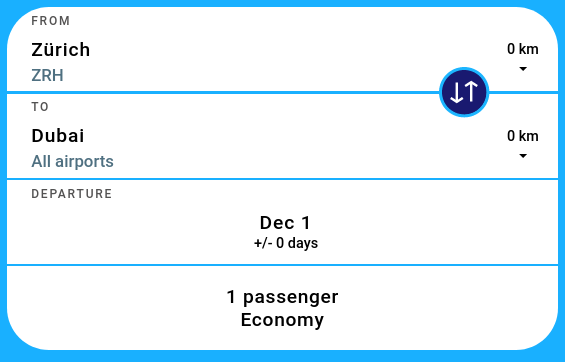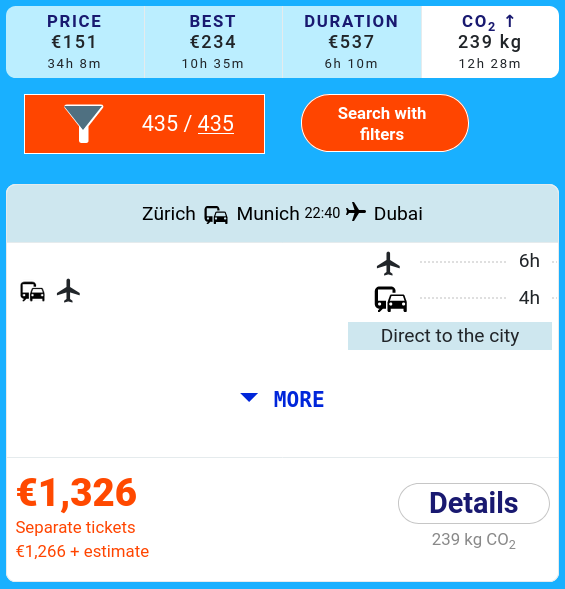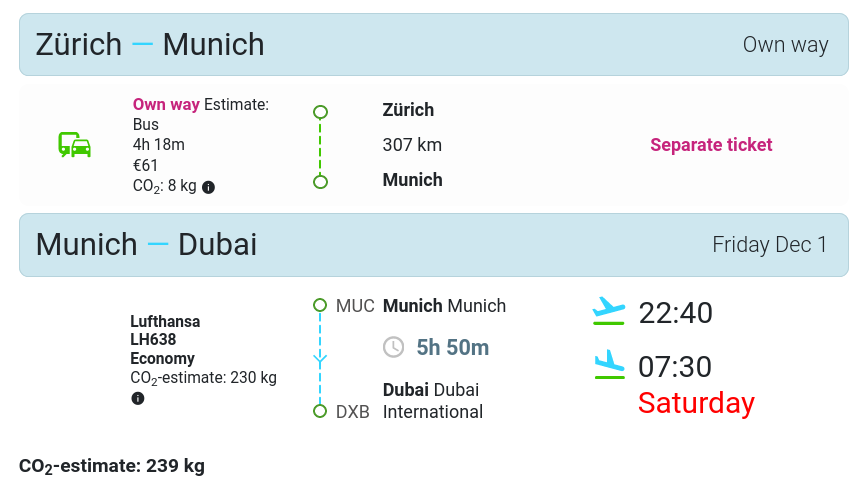Departing from Munich can be less impactful
Tomorrow, on November 30th, the United Nations Climate Change Conference for 2023, more commonly known as COP28, begins in Dubai. For those going, it will be of interest to get there without impacting Mother Earth more than necessary.
Most attendants have already booked their flights. Nonetheless, I here describe how emission cuts may be achieved by considering different routes, using Zürich as an example departure city.
I tried the search from Zürich to Dubai on December 1st in our travel planner PanFlights, and ordered results by CO2.
A direct flight to Dubai had an estimated emission of 284 kg CO2 for an economy class seat. Direct flights often give the lowest emission levels for trips from A to B.
PanFlights also considers flights reachable with a moderate amount of overland transport. And it was among such alternatives the route with the lowest CO2-emission was found.


The flight with the lowest emission found within reasonable distance was from Munich, about four hours away. The details view provides more information.

The Lufthansa flight from Munich is still direct, and has a lower estimated emission of 230 kg CO2 for a person traveling in economy class.
We must also consider the CO2-cost of getting to Munich. If taking the route by bus an estimate of 8 kg is given. This rounds up to 239 kg CO2 in total. There are also direct trains between the cities.
The savings of 45 kg CO2 almost equals our most sustainable route suggestion from Oslo to Glasgow, where the climate conference COP26 was held back in 2021. With the train from Oslo to Stavanger, a low-emission flight to Aberdeen, and another train to Glasgow our estimate is 47 kg CO2. You can read more about that here.
An afterthought
It would be helpful for the environment if search engines could somehow boost products and services that can help people reduce their carbon footprints. Not only would people be more likely to choose more sustainable options. It would also incentivize companies to shift their search engine visibility strategies.
Use of so-called long-tail content and other search engine optimization methods would likely be reduced, and the focus on providing low-impact products and services increased.

